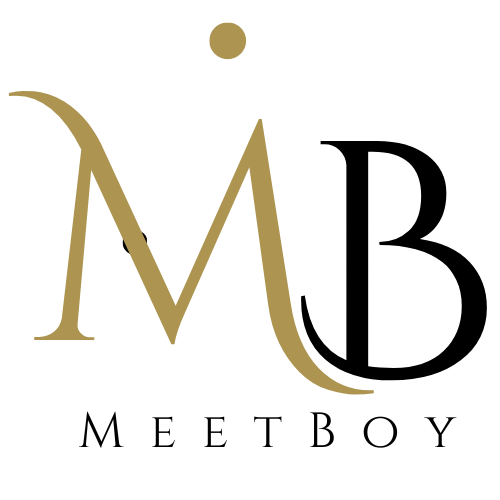In the modern-day world of inventory management and asset monitoring, RFID (Radio Frequency Identification) technology has emerged as an essential player, reinventing the way businesses run, especially in markets such as laundry and fabric solutions. Among the different types of RFID tags, the UHF RFID tag 9662 stands out for its performance and flexibility.
One of the most substantial benefits of making use of the UHF RFID tag 9662 in laundry applications is its ruggedness and durability. These tags are specifically created to stand up to the extreme problems typically encountered in laundry procedures, consisting of direct exposure to high temperatures, water, and cleaning agents. High-temperature RFID tags are crafted to keep their operational honesty also when subjected to extreme heat, which is especially crucial during the laundering procedure. The extensive washing and drying cycles that textiles undergo can present an obstacle for standard tracking methods, yet with UHF RFID tags such as the 9662, businesses can significantly improve their inventory administration abilities.
With RFID laundry systems, each item of clothing or linen can be installed with a tag, enabling for real-time monitoring throughout the cleaning and sorting procedures. This not only minimizes the risk of loss however likewise enhances general effectiveness by automating the data collection procedure. As opposed to relying upon handbook checking and checks, employees can utilize portable RFID visitors to check numerous products simultaneously, drastically quickening the stock procedure. The UHF RFID tag 9662, with its high read variety of approximately 10 meters, ensures that scanning can occur without requiring to be near to the labelled item. This distance ability is specifically helpful in large operations where large quantities of fabrics are dealt with daily.
In enhancement to boosting performance, RFID technology likewise provides boosted presence right into stock. With the data analytics supplied via RFID systems, companies can gain meaningful understandings right into their operations.
When it comes to managing laundry procedures, RFID modern technology can likewise facilitate better responsibility. The combination of RFID right into laundry operations likewise straightens well with sustainability initiatives, as it aids reduce waste and enhance application rates for fabrics.
An additional remarkable benefit of including RFID technology in laundry applications is the potential for lowered labor expenses. While the initial expense of executing an RFID system may be higher than typical methods, the operational performances obtained can lead to substantial financial savings over time.
The landscape of laundry services is vibrant, with ever-evolving consumer needs and competitive pressures. In this context, deploying UHF RFID tags like the 9662 is not simply a fad however a tactical imperative for businesses intending to remain affordable. RFID laundry applications are constantly adjusting to accommodate innovations, making sure that the technical facilities supports the expanding needs of the industry. As innovation proceeds to advance, future advancements may present also extra innovative tags with enhanced functions, such as increased memory capability for saving comprehensive thing background or far better file encryption for improved information protection.
Applying RFID modern technology into laundry operations does not merely represent an upgrade in tracking techniques; it represents a shift toward an extra linked and data-driven technique to supply management. This standard change is reflective of wider fads across various industries, where traditional techniques are increasingly being matched or changed by technology services that enhance control, visibility, and efficiency. As more companies identify the benefits of RFID, especially the UHF RFID tag 9662, the fostering of these systems is likely to accelerate, developing a causal sequence throughout the sector.
As organizations think about integrating RFID innovation into their procedures, they need to make certain proper training and onboarding for personnel participants. With experienced personnel and well-implemented systems, organizations can completely take advantage of the advantages of RFID tag modern technology to achieve functional excellence.
The assimilation of RFID in laundry services can pave the method for enhanced consumer experiences. Envision a scenario where clients can easily track the place and standing of their items by means of a mobile application. Such openness constructs count on and reinforces client partnerships, as consumers appreciate being maintained educated regarding their orders. This level of involvement can establish a laundry solution apart in a congested market, enhancing customer contentment and motivating repeat company.
In checking out the subtleties of RFID laundry applications, it’s essential to think about the long-lasting cost-benefit analysis. While first financial investments in RFID modern technology, such as buying tags, visitors, and software program, may appear significant, the capacity for return on financial investment is substantial.
Protection is another essential facet when applying RFID innovation in laundry operations. Firms must be thorough in establishing safeguards around the information accumulated and sent. This consists of executing robust security methods, making sure safe information storage, and having protocols in position for data gain access to and sharing. By prioritizing information protection, companies can mitigate the dangers connected with information breaches and maintain the depend on of their consumers.
As we seek to the future, the crossway of RFID innovation and laundry solutions holds fantastic assurance. Advancements in tag style, consisting of miniaturization and enhanced resilience for tough environments, will continue to drive adoption and boost efficiency. Making use of RFID in combination with other technologies, such as IoT gadgets and advanced analytics, can even more improve operational capabilities and decision-making procedures.
To conclude, uhf rfid tags of UHF RFID tags like the 9662 within the laundry sector represents a substantial jump forward in functional effectiveness, inventory control, and client satisfaction. With their toughness, capability to hold up against extreme problems, and high read varieties, these tags are customized for the strenuous needs of contemporary laundry solutions. As services progressively identify the tangible benefits of implementing RFID systems– including decreased labor prices, boosted monitoring, and enhanced data exposure– they are well-positioned to prosper in an ever-evolving industry. By embracing this innovation, laundry solutions are not simply improving their operations; they are preparing for ingenious, data-driven methods that will certainly form the future of supply management across different fields.

